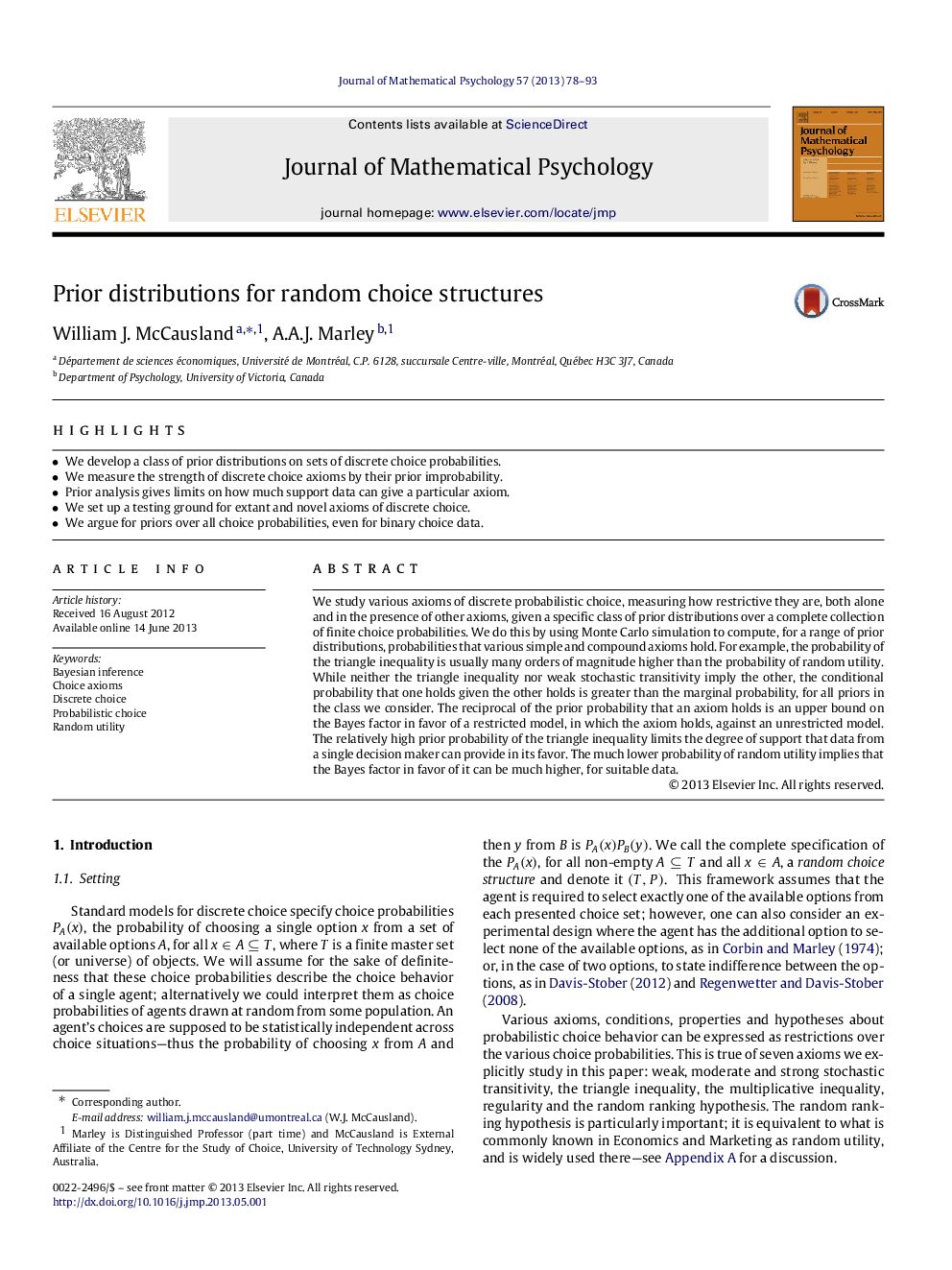| کد مقاله | کد نشریه | سال انتشار | مقاله انگلیسی | نسخه تمام متن |
|---|---|---|---|---|
| 326330 | 542233 | 2013 | 16 صفحه PDF | دانلود رایگان |

• We develop a class of prior distributions on sets of discrete choice probabilities.
• We measure the strength of discrete choice axioms by their prior improbability.
• Prior analysis gives limits on how much support data can give a particular axiom.
• We set up a testing ground for extant and novel axioms of discrete choice.
• We argue for priors over all choice probabilities, even for binary choice data.
We study various axioms of discrete probabilistic choice, measuring how restrictive they are, both alone and in the presence of other axioms, given a specific class of prior distributions over a complete collection of finite choice probabilities. We do this by using Monte Carlo simulation to compute, for a range of prior distributions, probabilities that various simple and compound axioms hold. For example, the probability of the triangle inequality is usually many orders of magnitude higher than the probability of random utility. While neither the triangle inequality nor weak stochastic transitivity imply the other, the conditional probability that one holds given the other holds is greater than the marginal probability, for all priors in the class we consider. The reciprocal of the prior probability that an axiom holds is an upper bound on the Bayes factor in favor of a restricted model, in which the axiom holds, against an unrestricted model. The relatively high prior probability of the triangle inequality limits the degree of support that data from a single decision maker can provide in its favor. The much lower probability of random utility implies that the Bayes factor in favor of it can be much higher, for suitable data.
Journal: Journal of Mathematical Psychology - Volume 57, Issues 3–4, June–August 2013, Pages 78–93